 Wasted food accounts for more of our garbage than anything except paper, and costs consumers considerably more. Little wonder that the Frugal Goddess is out to help people avoid it.
Wasted food accounts for more of our garbage than anything except paper, and costs consumers considerably more. Little wonder that the Frugal Goddess is out to help people avoid it.
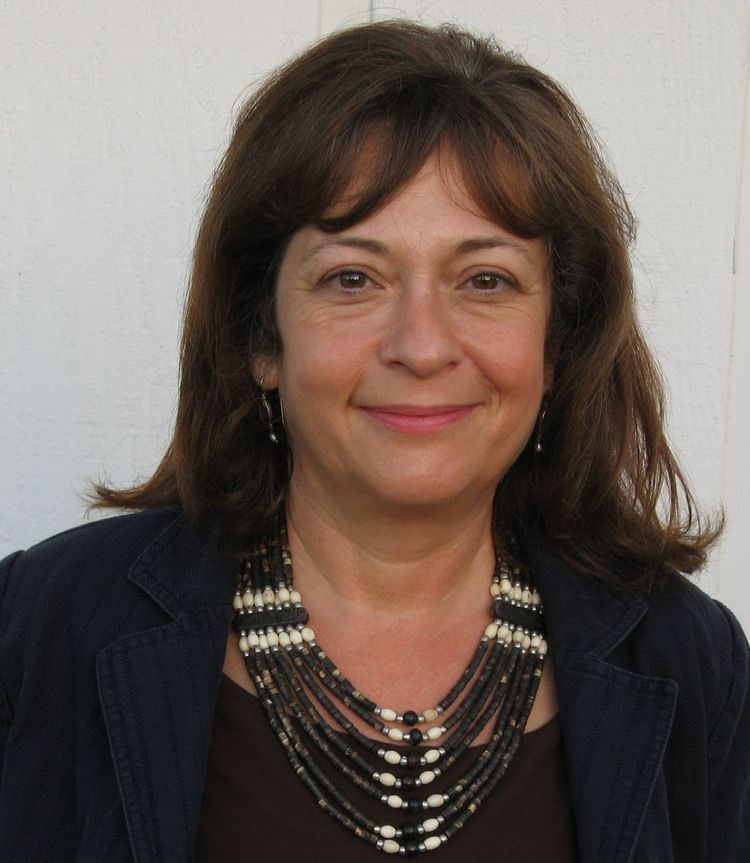 Annabel AscherWhen hard times hit, Annabel Ascher found all sorts of ways to stretch her available resources. When she realized that others didn't know they tactics she used, but could benefit from them, her online alter ego was born.
Annabel AscherWhen hard times hit, Annabel Ascher found all sorts of ways to stretch her available resources. When she realized that others didn't know they tactics she used, but could benefit from them, her online alter ego was born.
Frugality, says Ascher, is a form of mindfulness, something distinctly different from being "cheap."
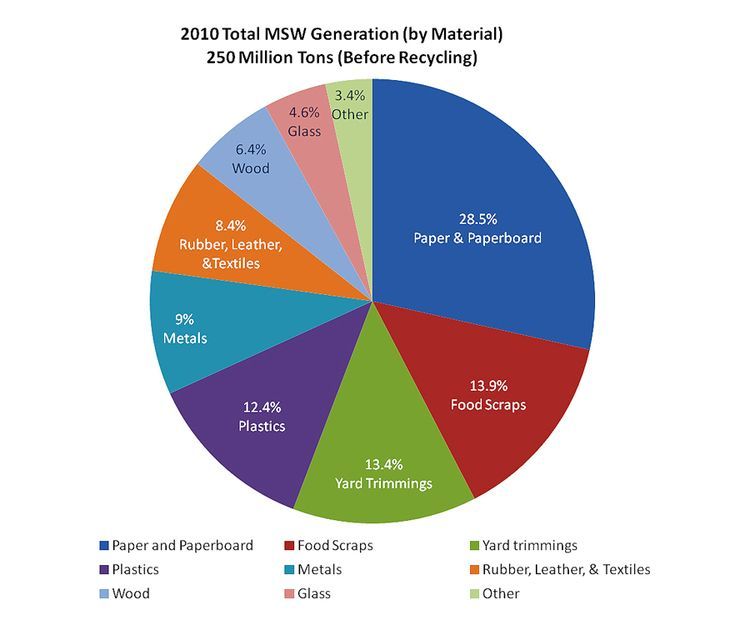 In order to make those long-term plans and dreams happen, Ascher advises, a key tool is detailed short-term planning, especially around food purchasing.
In order to make those long-term plans and dreams happen, Ascher advises, a key tool is detailed short-term planning, especially around food purchasing.
Annabel Ascher, the Frugal Goddess, will host a "Stop Food Waste now" workshop at the at the Share Exchange, 531 Fifth Street in downtown Santa Rosa, at 7 pm on Monday, October 15.
 Reverse migration—a wave of Hispanic immigrants who are returning from the United States to their homelands—is being driven by more than a lack of jobs here. Deportations, drug cartel brutality and new economic opportunities elsewhere are also factors.
Reverse migration—a wave of Hispanic immigrants who are returning from the United States to their homelands—is being driven by more than a lack of jobs here. Deportations, drug cartel brutality and new economic opportunities elsewhere are also factors.
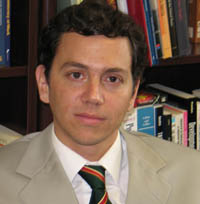 Francisco GonzalezAlthough calls for immigration reform continue, and it remains a hot-button political issue, the actual numbers of people entering the United States illegally has dropped sharply in recent years, according to Francisco Gonzalez, a professor at the Johns Hopkins University School of Advanced International Studies in Washington, D.C He was a featured presenter at the annual Latino Health Forum in Santa Rosa Oct. 11.
Francisco GonzalezAlthough calls for immigration reform continue, and it remains a hot-button political issue, the actual numbers of people entering the United States illegally has dropped sharply in recent years, according to Francisco Gonzalez, a professor at the Johns Hopkins University School of Advanced International Studies in Washington, D.C He was a featured presenter at the annual Latino Health Forum in Santa Rosa Oct. 11.
 Leading would-be immigrants through the hidden routes into the US is now a much more dangerous undertaking, explains Gonzalez, but for the travelers more than their guides.
Leading would-be immigrants through the hidden routes into the US is now a much more dangerous undertaking, explains Gonzalez, but for the travelers more than their guides.
Despite its large Hispanic population, California has not experienced reverse migration to the same extent as other, more urbanized states, explains Gonzalez, because they represent as much as three quarters of the agricultural workforce here.
 Occupy Santa Rosa has gone through some changes since the movement first emerged a year ago, but despite a lowered public profile, they have definitely not gone away.
Occupy Santa Rosa has gone through some changes since the movement first emerged a year ago, but despite a lowered public profile, they have definitely not gone away.
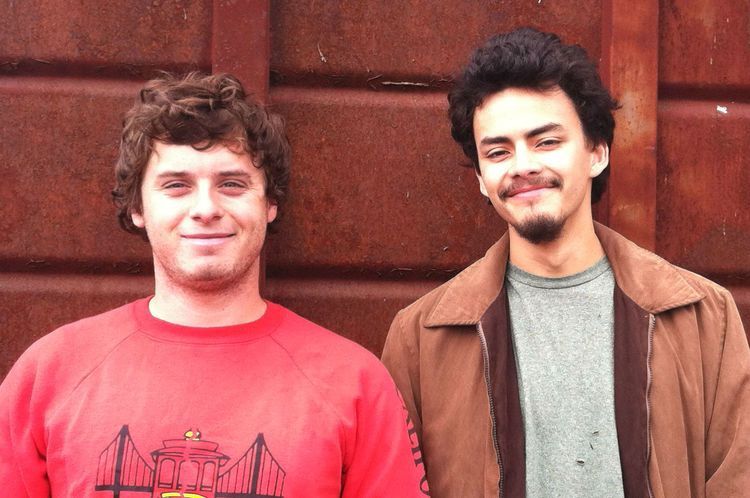 Carl Patrick and Jordan Torres In some ways, says Occupy Santa Rosa organizer Carl Patrick, the end of their City Hall encampment has enabled the group to work more intensively on local economic issues that directly affect workers in the city. One of them, which he terms "wage theft" will be the subject of a planned action later this month.
Carl Patrick and Jordan Torres In some ways, says Occupy Santa Rosa organizer Carl Patrick, the end of their City Hall encampment has enabled the group to work more intensively on local economic issues that directly affect workers in the city. One of them, which he terms "wage theft" will be the subject of a planned action later this month.
 This shift to more direct actions is more impactful for the local population than big public demonstrations, adds fellow OSR activist Jordan Torres.
This shift to more direct actions is more impactful for the local population than big public demonstrations, adds fellow OSR activist Jordan Torres.
 From the outset, Occupy Santa Rosa has had an uneasy relationship with local police, something that has receded but not disappeared since the group left the grounds of City Hall. Which is not surprising, Patrick says, as their respective roles are inherently at odds to some degree.
From the outset, Occupy Santa Rosa has had an uneasy relationship with local police, something that has receded but not disappeared since the group left the grounds of City Hall. Which is not surprising, Patrick says, as their respective roles are inherently at odds to some degree.
Occupy Santa Rosa's one year birthday celebration begins at Old Courthouse Square at 3 o'clock on Sunday afternoon. You can find out more
.
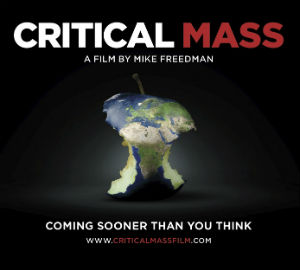 This summer Mike Freedman finished his first feature film, "Critical Mass," a documentary that explores human population growth and its effects on the planet and us. Prior to the film's showing at the Mill Valley Film Festival Saturday, Oct. 13 and Sunday, Oct. 14, Freeman caught up with KRCB's Danielle Venton.
This summer Mike Freedman finished his first feature film, "Critical Mass," a documentary that explores human population growth and its effects on the planet and us. Prior to the film's showing at the Mill Valley Film Festival Saturday, Oct. 13 and Sunday, Oct. 14, Freeman caught up with KRCB's Danielle Venton.
Freedman explains why he thinks in terms of "crowding," not "over population."
Before the film can be distributed widely, Freedman and his team need to pay for using archival footage. They've launched an Indiegogo campaign in the hopes of raising the needed $30,000.
{vimeo}23474964{/vimeo}
 Depression can be debilitating, and is surprisingly common, especially among college students--two reasons why Santa Rosa Junior College will hold its annual depression screening tomorrow.
Depression can be debilitating, and is surprisingly common, especially among college students--two reasons why Santa Rosa Junior College will hold its annual depression screening tomorrow.
 Dr. Bert EpsteinWith seven professionals standing by to administer the short screenings, hundreds of students will be able to participate, says Dr. Bert Epstein, Assistant Director of Student Health Services at Santa Rosa Junior College. And everyone who goes through the screening will leave with a list of available resources, regardless of what the screening tells them.
Dr. Bert EpsteinWith seven professionals standing by to administer the short screenings, hundreds of students will be able to participate, says Dr. Bert Epstein, Assistant Director of Student Health Services at Santa Rosa Junior College. And everyone who goes through the screening will leave with a list of available resources, regardless of what the screening tells them.
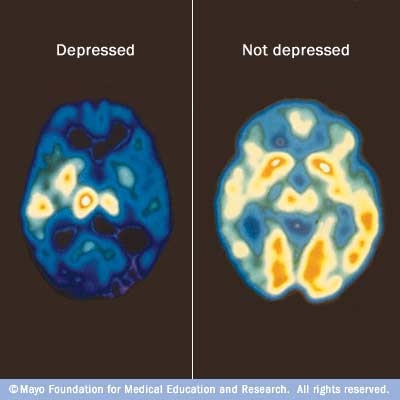 These two scanned images show the distinct difference between a depressed brain, on the left, and one that is not experiencing depression on the right. Providing all these services is important for the student population at the Junior College, Dr. Epstein adds, because their need has been shown to be higher than other groups.
These two scanned images show the distinct difference between a depressed brain, on the left, and one that is not experiencing depression on the right. Providing all these services is important for the student population at the Junior College, Dr. Epstein adds, because their need has been shown to be higher than other groups.
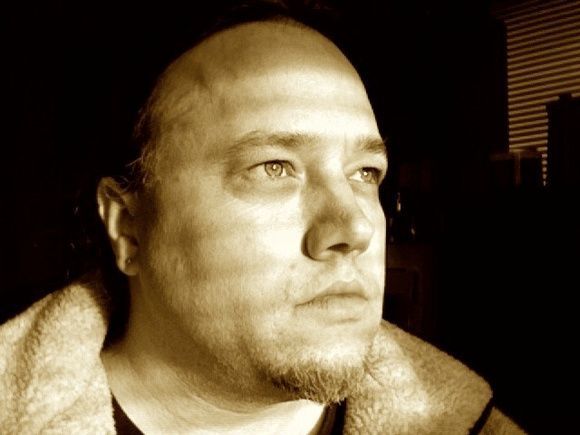 Brian Wetze
Brian Wetze
lBrian Wetzel, a professional public speaker and comedian from Santa Rosa has developed an entire presentation that explores the humor that he has been able to extract from his own lengthy experience with depression. In one bit, he imagines a special summer camp for depressed kids—and staff.

 Live Radio
Live Radio